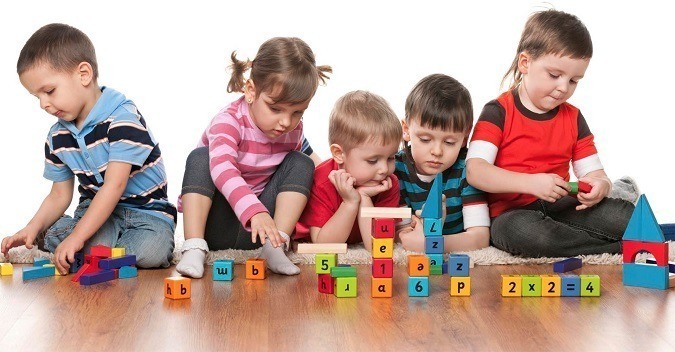Study: Both maternal and parental obesity linked to young children’s neurodevelopmental delays
 —–
—–
Parental obesity linked to delays in child development, NIH study suggests (NIH press release):
“Children of obese parents may be at risk for developmental delays, according to a study by researchers at the National Institutes of Health. The investigators found that children of obese mothers were more likely to fail tests of fine motor skill—the ability to control movement of small muscles, such as those in the fingers and hands. Children of obese fathers were more likely to fail measures of social competence, and those born to extremely obese couples also were more likely to fail tests of problem solving ability…Children in the study were tested at 4 months of age and retested 6 more times through age 3. When they enrolled, mothers also provided information on their health and weight—before and after pregnancy—and the weight of their partners.
Compared to children of normal weight mothers, children of obese mothers were nearly 70 percent more likely to have failed the test indicator on fine motor skill by age 3. Children of obese fathers were 75 percent more likely to fail the test’s personal-social domain—an indicator of how well they were able to relate to and interact with others by age 3. Children with two obese parents were nearly three times more likely to fail the test’s problem solving section by age 3…If the link between parental obesity and developmental delays is confirmed, the authors wrote, physicians may need to take parental weight into account when screening young children for delays and early interventional services.”
Study: Parental Obesity and Early Childhood Development (Pediatrics). From the Abstract:
- BACKGROUND: Previous studies identified associations between maternal obesity and childhood neurodevelopment, but few examined paternal obesity despite potentially distinct genetic/epigenetic effects related to developmental programming.
- METHODS: Upstate KIDS (2008–2010) recruited mothers from New York State (excluding New York City) at ?4 months postpartum. Parents completed the Ages and Stages Questionnaire (ASQ) when their children were 4, 8, 12, 18, 24, 30, and 36 months of age corrected for gestation. The ASQ is validated to screen for delays in 5 developmental domains (ie, fine motor, gross motor, communication, personal-social functioning, and problem-solving ability).
- RESULTS: Compared with normal/underweight mothers (BMI <25), children of obese mothers (26% with BMI ?30) had increased odds of failing the fine motor domain (aOR 1.67; confidence interval 1.12–2.47). The association remained after additional adjustment for paternal BMI (1.67; 1.11–2.52). Paternal obesity (29%) was associated with increased risk of failing the personal-social domain (1.75; 1.13–2.71), albeit attenuated after adjustment for maternal obesity (aOR 1.71; 1.08–2.70). Children whose parents both had BMI ?35 were likely to additionally fail the problem-solving domain (2.93; 1.09–7.85).
- CONCLUSIONS: Findings suggest that maternal and paternal obesity are each associated with specific delays in early childhood development, emphasizing the importance of family information when screening child development.
To learn more:


